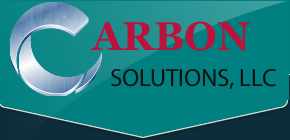Our Markets:
Carbon Solutions, LLC has been serving the activated carbon global market for over 20 years. Supplying activated carbon in: (PAC) Powder Activated Carbon, (GAC) Granular Activated Carbon, (EAC) Extruded Activated Carbon Pellets and Sulphur Impregnated Activated Carbon such as KOH and KI among others. Our Activated Carbons are manufactured from bituminous and/or sub bituminous coal, lignite, coconut shell, hard woods and anthracite. Carbon Solutions, LLC supplies Activated Carbon in different sizes and qualities as well as custom manufacture Activated Carbon as per your specifications. We follow several steaming processes that produces quality Activated Carbon meeting and exceeding industry standards. Take a moment to view our many products.
Air
Air is critical for survival of all living creatures. Activated carbon filters and treats unwanted and harmful contaminants in air and gas streams.
Automotive
Vehicles produce harmful fuel system emissions. Activated Carbon adsorbs contaminants to produce purified air.
Catalyst
Catalysts are important for chemical and compound production. Activated Carbon is used as catalyst carrier or direct catalysts for many applications.
Chemicals
Thousands of chemicals improve our lives and the products we use. Activate Carbon is used in chemical manufacturing to enhance performance and effectiveness.
Food & Beverage
Nature produces great foods and beverages. Activated Carbon products improve color, taste, eliminate odors and enhance purity.
Gold Recovery
Gold is a precious commodity. Activated Carbon products reduce losses during the gold mining process.
Pharmaceutical
Pharmaceutical products help support healthy living. Activated Carbon products aid in manufacturing certain compounds and drugs to improve purity, effectiveness and stability.
Water
Activated Carbon products condition, treat and purify water. In water purification, activated carbon removes impurities and contaminants through the chemical process of adsorption. But it is used in a wide range of applications besides water filtration.

